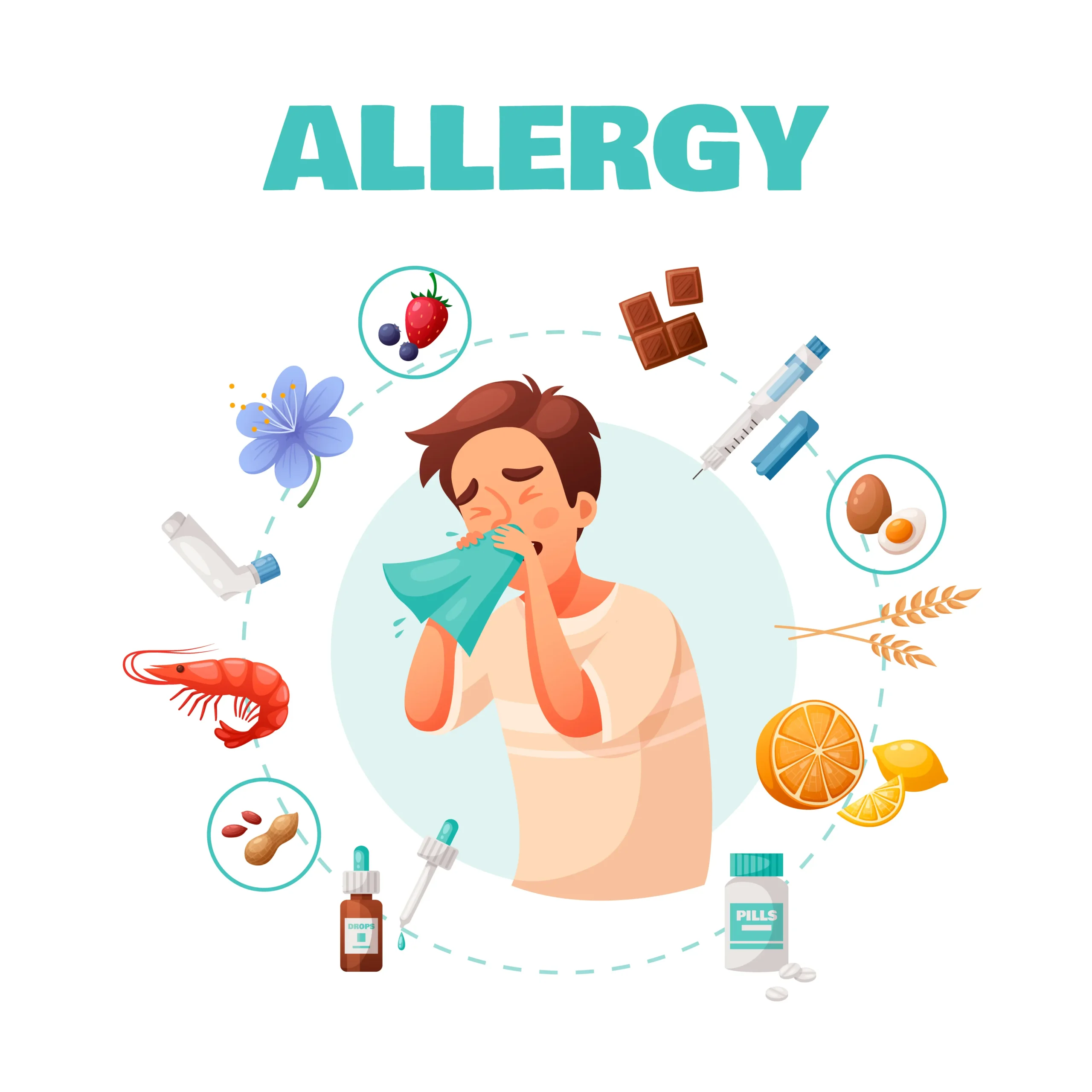We’re selling organic products
Discover the Power of Nature with Our Organic Products
+91 83064 08402

Understanding Allergies
Allergies are immune system responses to substances that are typically harmless but perceived as threats. This page provides insights into different types of allergies, common triggers, symptoms, and management strategies.
Types of Allergies
Seasonal Allergies (Hay Fever)
- Triggers: Pollen from trees, grasses, and weeds during specific seasons.
- Symptoms: Sneezing, runny or stuffy nose, itchy eyes, and throat irritation.
- Management: Antihistamines, decongestants, nasal sprays, and avoiding allergen exposure.
Food Allergies
- Triggers: Common allergens include peanuts, tree nuts, shellfish, eggs, milk, wheat, and soy.
- Symptoms: Tingling in the mouth, hives, swelling of the lips, face, tongue, or throat, abdominal pain, diarrhea, and potentially life-threatening anaphylaxis.
- Management: Avoiding allergens, reading food labels carefully, carrying epinephrine (EpiPen), and seeking medical advice.
Allergic Asthma
- Triggers: Allergens such as dust mites, pet dander, mold spores, and pollen.
- Symptoms: Wheezing, shortness of breath, chest tightness, and coughing.
- Management: Inhaled corticosteroids, bronchodilators, allergy shots (immunotherapy), and reducing exposure to triggers.
Common Allergy Symptoms
- Skin: Itching, hives, or eczema.
- Respiratory: Sneezing, nasal congestion, coughing, wheezing.
- Eyes: Red, itchy, watery eyes.
- Digestive: Nausea, vomiting, abdominal pain, diarrhea.
Tips for Managing Allergies
- Identify Triggers: Keep a diary to track symptoms and identify allergens.
- Allergy Testing: Consult an allergist for skin tests or blood tests to pinpoint specific allergens.
- Medication: Use prescribed medications as directed by healthcare providers.
- Allergy Action Plan: Develop a plan with healthcare providers for managing severe allergic reactions.

Why Choose SGP Group?
Experience exceptional service and unparalleled support with SGP Group.
-
Refreshing to get such a personal touch in service
-
Committed to excellence in every interaction
-
Innovative solutions tailored to your needs
Frequently Asked Question!
Seasonal allergies, also known as hay fever, are often triggered by:
- Pollen: From trees, grasses, and weeds during specific times of the year.
- Mold Spores: Especially in damp and humid environments.
- Dust Mites: Common indoor allergens found in bedding, upholstery, and carpets.
Managing food allergies involves several strategies:
- Avoidance: Read food labels carefully and avoid foods that contain allergens.
- Emergency Plan: Carry an epinephrine auto-injector (EpiPen) if you have severe allergies.
- Consultation: Work with an allergist to identify allergens through testing and develop a personalized management plan.
If you suspect you have allergies:
- Keep a Symptom Diary: Track symptoms and potential triggers to discuss with a healthcare provider.
- Consult an Allergist: Consider allergy testing to identify specific allergens causing your symptoms.
- Treatment Options: Explore medications such as antihistamines, decongestants, nasal sprays, or immunotherapy (allergy shots) under medical guidance.







